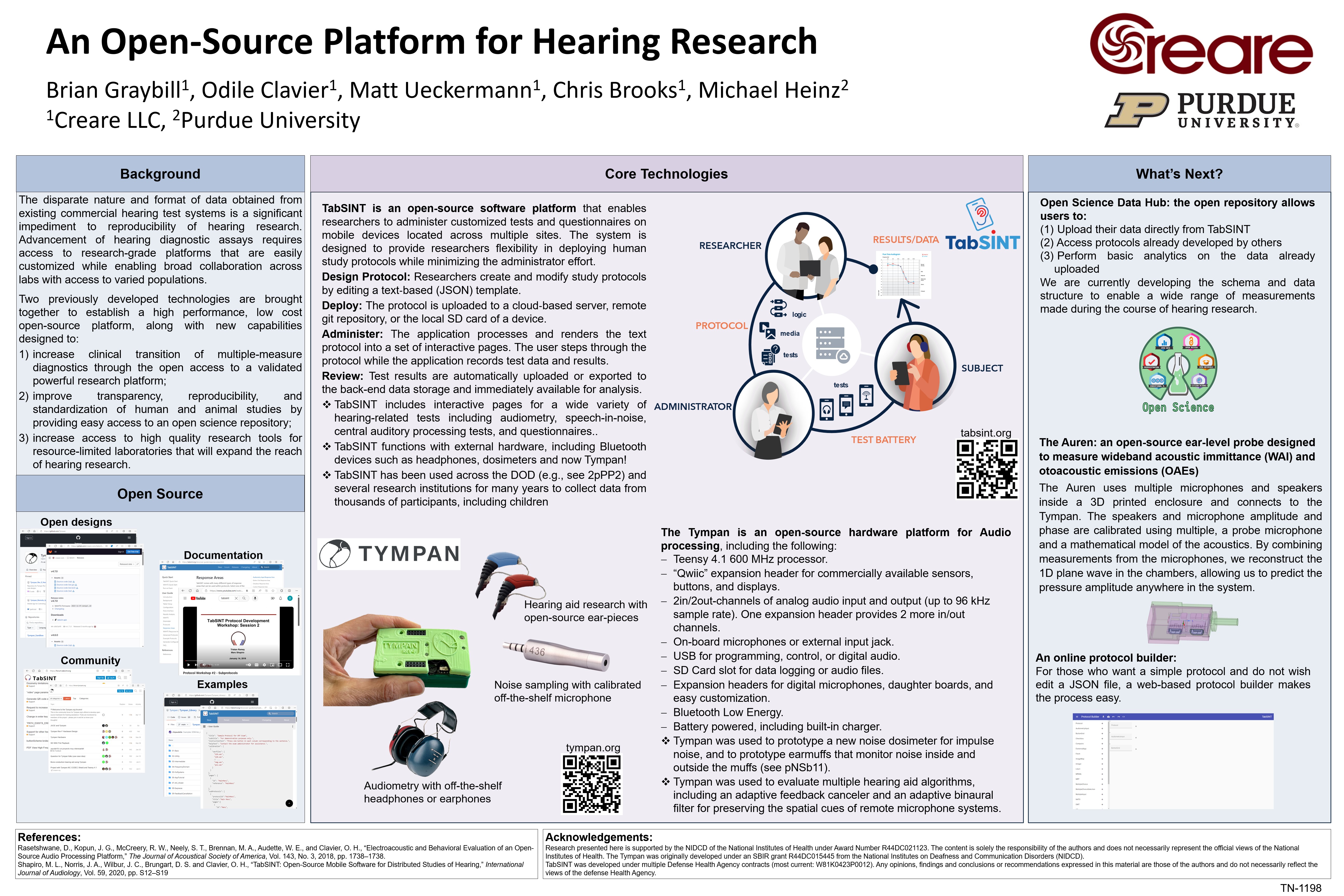About Us
Odile Clavier is a research engineer at Creare LLC. Her general areas of interest include dynamics, controls, and precision engineering with an emphasis on biomedical applications. She has a lot of experience with hearing assessment technology as well as mobile health applications. For this open-source hearing research platform, Odile is the lead investigator: she keeps the team moving forward toward a platform that successfully meets the needs of the hearing research community.
Vero Archambault-Léger is a research engineer at Creare LLC. Vero’s interests lie primarily in developing software to solve important and interesting problems. Recently, her work focused on mobile health and biomedical engineering. She is a full-stack software developer and has experience with many languages including JavaScript, Python, and Flutter. She leads the development and maintenance of TabSINT.
Chris Brooks is a research engineer at Creare LLC. He likes to apply his expertise in robotic control and instrumentation to new technologies. He leads the firmware development on the Tympan to implement all the hearing tests we are currently targeting.
Matt Ueckermann is a research engineer at Creare LLC. Matt develops mathematical models of physical systems; devises novel and optimized algorithms for analysis and data processing; and develops scientific software for geospatial, hearing/acoustics, 3-D reconstruction, and robotics applications. He leads the development of the Auren for this platform.
Brian Graybill is a research engineer at Creare LLC. He applies his mechanical design skills to develop devices appropriate for human use and optimized for acoustics. He manages the day-to-day activities as we develop the platform.
Michael Heinz is a professor of Speech, Language, and Hearing Sciences & Biomedical Engineering at Purdue University and he leads the Audiology Research Diagnostics Core (ARDC) laboratory there. Mike’s research focuses on understanding and quantifying relations between physiological and perceptual effects of sensorineural hearing loss (SNHL). His expertise supports the overall development of the platform and its validation for use in human and animal studies of hearing.
Hari Bharadwaj is assistant professor in the department of communication sciences and disorders at the University of Pittsburg and collaborates closely with Mike Heinz at Purdue on his research. His research combines human electrophysiological and acoustical measures along with behavioral experiments and computational modeling, to understand the physiological mechanisms underlying our ability to listen in complex everyday environments with multiple sound sources. His expertise will inform the development of the Auren and of the many features of our platform.
Joshua Alexander is associate professor of Speech, Language, and Hearing Sciences at Purdue University and his research involves the interplay of three key components: basic research (understanding normal and impaired auditory perception), translational research (digital signal processing techniques for hearing aids and automatic speech recognition), and modeling (information-theoretic and neural models of perception). Josh was a key contributor to the development of the original Tympan for hearing aid research and he will help the team continue to expand the platform.
Ananth Grama is professor of Computer Science, and he builds on his extensive experience building large complex systems such as the largest metagenomics portals (MG-RAST) which hosts over 10PB of data and serves over 50,000 users each year. He leads the development of the open science repository for our hearing research platform.
